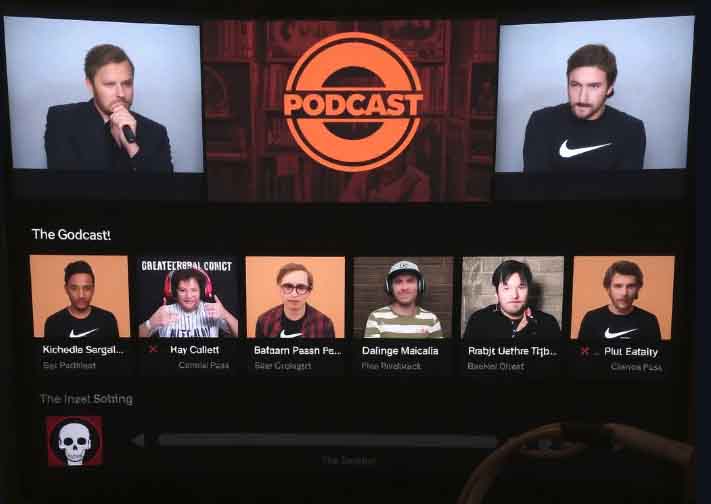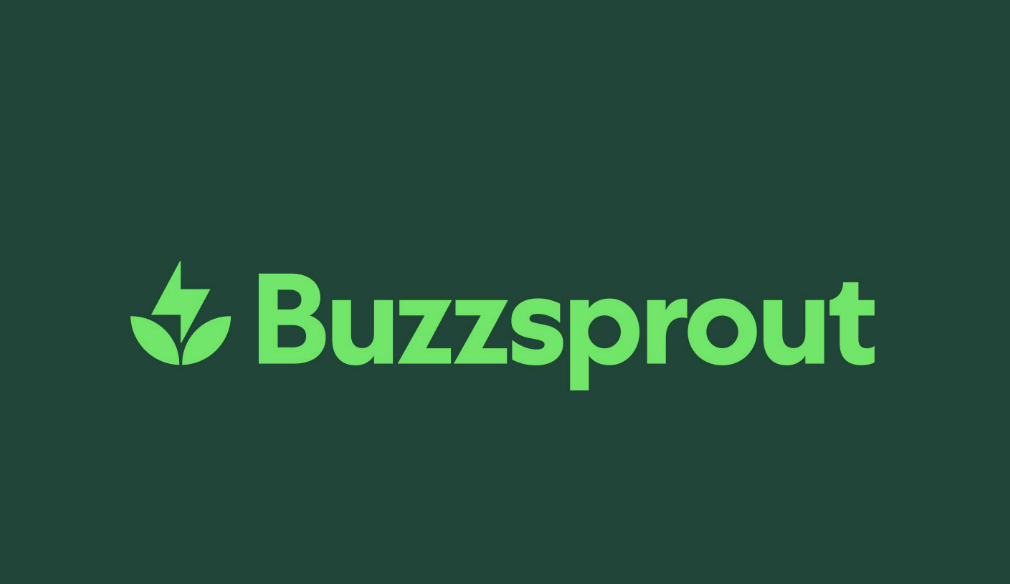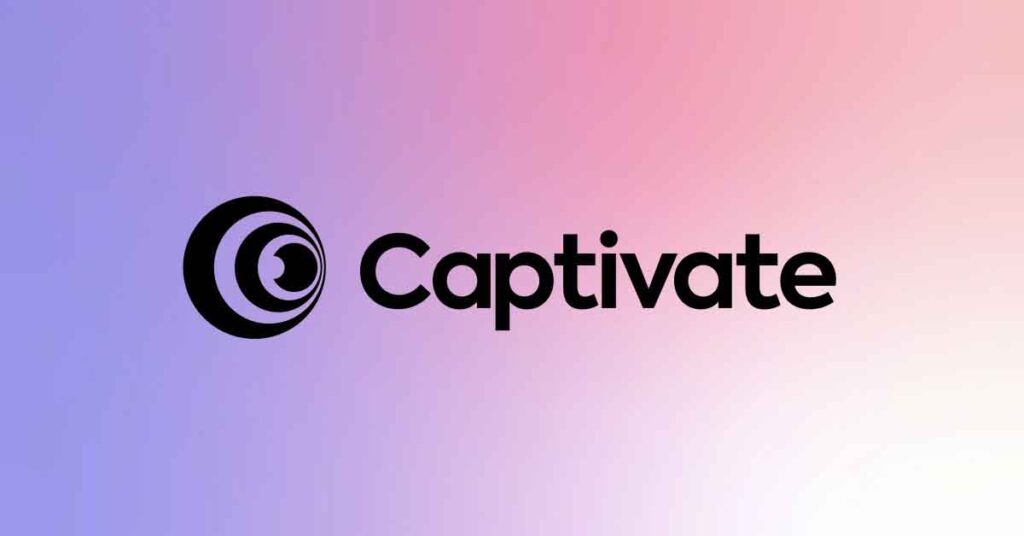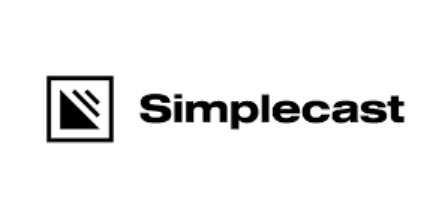
Introduction: 7 best podcast hosting platform
When starting a podcast, choosing the right podcast platform is crucial. The platform you pick can affect your podcast’s growth, reach, and ease of use. Many options are available, each with unique features, pricing, and benefits.
Podcasters must consider their goals and needs. Do they want advanced analytics or simple uploads? Understanding what you need helps narrow down your choices. A good platform makes it easy to upload, distribute, and promote your episodes. This guide will help you explore the best podcast hosting platforms, ensuring you make an informed decision for your podcast journey. Now read the pros & Cons, then choose the right platform which is perfect for among this 7 best podcast hosting platform list.
Related Post: 10 criteria for choosing the best podcast hosting platforms
Buzzsprout
 It is one of the best podcast hosting platforms for new podcasters. It’s easy to use and offers great features to help beginners grow their podcasts. Let’s break down the key points about Buzzsprout:
It is one of the best podcast hosting platforms for new podcasters. It’s easy to use and offers great features to help beginners grow their podcasts. Let’s break down the key points about Buzzsprout:
- Price
Buzzsprout offers different pricing plans:
- Free plan (2 hours per month) but episodes get deleted after 90 days.
- Paid plans: $12/month (3 hours), $18/month (6 hours), and $24/month (12 hours).
- Features
Buzzsprout comes with some fantastic features:
- User-Friendly Interface: Even if you’re new to podcasting, you’ll find it easy to use. No tech skills are needed to upload episodes or manage your podcast.
- Free Website: They give you a simple website for your podcast. This helps people find your episodes online.
- Advanced Analytics: Buzzsprout shows you how many people listen to your podcast, where they are from, and what apps they use. It’s simple but effective.
- Monetization: Buzzsprout helps you make money from your podcast. They offer affiliate marketing and dynamic ad insertion.
- Episode Optimization: Buzzsprout automatically optimizes your episodes for better sound quality. It’s great for those who don’t know much about audio editing.
- Easy Distribution: They help you get your podcast on all major platforms like Apple Podcasts, Spotify, and Google Podcasts with just a few clicks.
- Pros
- Great for Beginners: Buzzsprout is super easy to use. You won’t need any advanced knowledge to get started.
- Free Plan Available: You can start without paying anything, which is perfect for testing the waters.
- Clear Analytics: Their analytics are simple to understand, which helps you track your podcast’s performance.
- Automatic Optimization: Your episodes get optimized without you doing anything. This is perfect if you don’t know how to handle audio settings.
- Cons
- Limited Free Plan: The free plan only gives you 2 hours of uploads per month. Also, your episodes get deleted after 90 days unless you upgrade.
- Storage Restrictions: Lower-paid plans have limits on how many hours you can upload. If your podcast grows or you release longer episodes, you may need a higher plan.
Podbean
 It is 2nd great podcast hosting platform that offers simple pricing and strong features for beginners. It’s designed to help new podcasters grow without too much hassle. Here’s a breakdown of what Podbean offers:
It is 2nd great podcast hosting platform that offers simple pricing and strong features for beginners. It’s designed to help new podcasters grow without too much hassle. Here’s a breakdown of what Podbean offers:
- Price
Podbean provides different plans:
- Free plan: No cost, but with basic features.
- Paid plans: $9/month for Unlimited Audio, and $29/month for Unlimited Plus.
- Features
Podbean offers several useful features:
- Unlimited Storage and Bandwidth: On the paid plans, you can upload as many episodes as you want, and there are no limits on how many people can listen.
- Customizable Website: They provide a simple website for your podcast. You can customize it to match your brand.
- Monetization Options: Podbean lets you earn money from your podcast through ads and listener support. You can set up ads or ask for donations from your audience.
- Mobile App: Podbean has a mobile app that lets you record and publish your podcast from your phone. This makes it easy to create episodes on the go.
- Video Podcast Support: If you want to host video podcasts, Podbean lets you do that as well. You can upload and share video content with your audience.
- Pros
- Unlimited Storage: On paid plans, you get unlimited storage and bandwidth, so you never have to worry about running out of space.
- Affordable Pricing: The plans are budget-friendly, especially for new podcasters.
- Built-In Monetization: You can start making money from your podcast as soon as you have listeners. Podbean gives you easy access to ads and listener donations.
- Mobile-Friendly: The app lets you record and publish episodes right from your phone. This makes it simple for beginners who don’t have advanced equipment.
- Cons
- Basic Analytics: The free and cheaper plans only provide limited analytics. If you want deeper insights into your listeners, you’ll need a higher plan.
- Limited Website Customization: While they offer a free website, the customization options are quite basic. You won’t have complete control over the design.
Captivate
 It is 3rd podcast hosting platform that focuses on helping podcasters grow their audience and brand. It offers advanced tools and features that are helpful for both beginners and experienced podcasters. Here’s a simple breakdown of what Captivate provides:
It is 3rd podcast hosting platform that focuses on helping podcasters grow their audience and brand. It offers advanced tools and features that are helpful for both beginners and experienced podcasters. Here’s a simple breakdown of what Captivate provides:
- Price
Captivate offers three pricing plans:
- $19/month for up to 12,000 downloads.
- $49/month for up to 60,000 downloads.
- $99/month for up to 150,000 downloads.
- Features
Captivate has some powerful features that make it stand out:
- Unlimited Storage and Episodes: You can upload as many episodes as you want, without worrying about running out of space.
- Built-In Podcast Website: They provide you with a simple, built-in website for your podcast. This helps people find your show online.
- Advanced Analytics: Captivate gives you detailed data about your listeners, like where they are from and how they listen. This helps you understand your audience better.
- Marketing Tools: Captivate is great for promoting your podcast. They offer tools like call-to-action buttons and social sharing to help you reach more listeners.
- Dynamic Content Insertion: You can add ads or announcements to your episodes after they’ve been published, without editing the original audio. This is helpful for adding promotions or changing ads.
- Pros
- Unlimited Podcasts and Episodes: No matter which plan you choose, you can host as many shows and episodes as you want.
- Growth-Focused Tools: Captivate is built to help podcasters grow their audience. The marketing tools and calls-to-action help you engage with your listeners more.
- Advanced Analytics: The detailed insights into your audience help you track your podcast’s success and plan better content.
- Dynamic Content: The ability to insert or change ads makes it easy to monetize your podcast and keep it fresh.
- Cons
- Higher Starting Price: Captivate starts at $19/month, which might be more expensive for new podcasters compared to other platforms.
- Feature-Heavy for Beginners: While Captivate has many advanced features, beginners might feel overwhelmed at first.
Anchor (now Spotify for Podcasters)
 Anchor, now known as Spotify for Podcasters, is a free podcast hosting platform designed to make podcasting simple for everyone. It’s especially helpful for beginners because it’s easy to use and offers a lot of features at no cost. Here’s a simple breakdown of Anchor:
Anchor, now known as Spotify for Podcasters, is a free podcast hosting platform designed to make podcasting simple for everyone. It’s especially helpful for beginners because it’s easy to use and offers a lot of features at no cost. Here’s a simple breakdown of Anchor:
- Price
Anchor is completely free to use. You don’t have to pay anything to create, host, or distribute your podcast. This makes it a great option for beginners who don’t want to spend money upfront.
- Features
Anchor offers several useful features:
- Unlimited Free Hosting: You can upload as many episodes as you want without worrying about storage limits or bandwidth issues.
- Monetization Options: Even though it’s free, Anchor helps you make money through sponsorships and listener donations. You can start monetizing your podcast as soon as you gain listeners.
- Mobile-Friendly: Anchor has a mobile app that lets you record, edit, and publish your podcast directly from your phone. This is perfect for podcasters who don’t have professional equipment.
- Easy Distribution: With just a few clicks, Anchor helps you distribute your podcast to major platforms like Spotify, Apple Podcasts, and Google Podcasts.
- Analytics Dashboard: Anchor provides basic analytics, showing you how many people listen to your episodes, where they are from, and what platforms they use.
- Pros
- Completely Free: Anchor doesn’t charge anything, so it’s great for new podcasters who want to start without any financial commitment.
- All-in-One Solution: Anchor combines hosting, recording, editing, and distribution in one place. You don’t need to use multiple tools to manage your podcast.
- Monetization for Beginners: Anchor makes it easy to start earning money from your podcast, even if you’re just starting out.
- Mobile-Friendly: You can create and publish episodes straight from your phone, which is convenient for beginners without a lot of gear.
- Cons
- Basic Editing Tools: Anchor’s editing features are simple, which might not be enough for podcasters who want more control over their audio.
- Limited Customization: While Anchor gives you a website for your podcast, the customization options are quite limited compared to paid platforms.
- Limited Analytics: The analytics provided are basic. If you need deeper insights into your listeners, you might need more advanced tools.
Transistor
 It is 5th podcast hosting platform designed for podcasters who want to grow their audience and manage multiple shows easily. It offers strong features for both beginners and professionals. Here’s a simple breakdown of Transistor:
It is 5th podcast hosting platform designed for podcasters who want to grow their audience and manage multiple shows easily. It offers strong features for both beginners and professionals. Here’s a simple breakdown of Transistor:
- Price
Transistor has a few pricing options:
- Starter Plan: $19/month for up to 15,000 downloads.
- Professional Plan: $49/month for up to 75,000 downloads.
- Business Plan: $99/month for up to 200,000 downloads.
Each plan includes unlimited storage and the ability to host multiple podcasts. Pricing is based on how many downloads you get each month, so as your podcast grows, you can upgrade to a higher plan.
- Features
Transistor offers several useful features that make it stand out:
- Unlimited Podcasts: You can host as many shows as you want with one account. This is great if you plan to create multiple podcasts.
- Advanced Analytics: Transistor gives you detailed insights into your listeners, including how many downloads you get and where your audience is located. This helps you understand your podcast’s performance better.
- Private Podcasting: You can create private podcasts for specific listeners. This is helpful for businesses or anyone who wants to share content with a select group.
- Customizable Website: Transistor provides a simple, customizable website for your podcast. You can make it look professional without needing web design skills.
- Collaborative Tools: You can add team members to help manage your podcasts. This is perfect if you’re working with others or have a production team.
- Pros
- Unlimited Shows: You can manage multiple podcasts under one account, which is useful if you want to create different shows without paying extra.
- Advanced Analytics: The detailed analytics give you a clear picture of your podcast’s growth and audience behavior.
- Private Podcasting: The option to create private podcasts is great for those who need to share exclusive content, whether for business or a small community.
- Easy Collaboration: The ability to add team members makes it easy to manage your podcast with others, especially for bigger projects.
- Cons
- Higher Cost: Transistor’s plans start at $19/month, which might be more expensive for beginners compared to other podcast hosting platforms.
- No Free Plan: Unlike some other platforms, Transistor doesn’t offer a free plan, so you have to pay to get started.
Simplecast
 It is 6th podcast hosting platform known for its user-friendly interface and strong analytics. It’s built for both beginners and professionals, offering simple tools to get your podcast up and running quickly. Here’s a clear breakdown of Simplecast:
It is 6th podcast hosting platform known for its user-friendly interface and strong analytics. It’s built for both beginners and professionals, offering simple tools to get your podcast up and running quickly. Here’s a clear breakdown of Simplecast:
- Price
Simplecast offers three pricing plans:
- Basic Plan: $15/month for up to 20,000 downloads.
- Essential Plan: $35/month for up to 50,000 downloads.
- Growth Plan: $85/month for up to 120,000 downloads.
All plans come with unlimited storage and uploads. The pricing depends on how many downloads your podcast gets each month, making it scalable as your audience grows.
- Features
Simplecast offers a range of useful features:
- Unlimited Storage and Uploads: You can upload as many episodes as you like without worrying about space or extra costs.
- One-Click Distribution: Simplecast makes it easy to distribute your podcast to all major platforms like Apple Podcasts, Spotify, and Google Podcasts with just one click.
- Advanced Analytics: You get detailed insights into your audience with tools that show you who’s listening, where they’re from, and which episodes are performing best.
- Customizable Podcast Website: They provide a simple, customizable website for your show, helping listeners find you easily online.
- Recast Tool: This feature lets you create shareable video clips of your episodes for social media, which can help you grow your audience.
- Pros
- Unlimited Uploads: No matter which plan you choose, you can upload as many episodes as you need, without storage limits.
- Great Analytics: Simplecast offers some of the best analytics tools, giving you a clear picture of how your podcast is doing and helping you make better content decisions.
- Easy Distribution: You can distribute your podcast to major platforms quickly and easily, which is great for beginners who don’t want to worry about technical details.
- Recast Tool: This tool makes promoting your episodes on social media easier by creating quick, shareable clips.
- Cons
- No Free Plan: Simplecast doesn’t offer a free plan, so you have to pay to start using the platform.
- Price Can Add Up: While the Basic Plan is affordable, if your podcast grows quickly, you may need to move up to higher-priced plans.
Libsyn
 It is the last and most reliable podcast hosting platform of my list. It’s known for its stability and flexibility, making it a favorite among experienced podcasters. Here’s a simple breakdown of Libsyn:
It is the last and most reliable podcast hosting platform of my list. It’s known for its stability and flexibility, making it a favorite among experienced podcasters. Here’s a simple breakdown of Libsyn:
- Price
Libsyn offers several pricing tiers:
- Classic 50 Plan: $5/month for 50 MB of storage.
- Classic 250 Plan: $15/month for 250 MB of storage.
- Advanced Plans: Starting at $20/month for even more storage.
Unlike other platforms, Libsyn charges based on storage rather than downloads, so you pay for how much content you upload each month. You can always upgrade if you need more space.
- Features
Libsyn offers solid features that cater to both beginners and professionals:
- Flexible Storage Plans: You can choose a plan based on how much content you need to upload, which can save money for smaller shows.
- Advanced Distribution: Libsyn distributes your podcast to major platforms like Apple Podcasts, Spotify, Google Podcasts, and more. You also get custom mobile apps if you want them.
- Monetization Options: You can monetize your podcast through ads, premium content, or listener donations directly from the platform.
- Detailed Analytics: Libsyn provides detailed analytics, showing you who’s listening, where they are from, and which episodes are the most popular.
- Custom Podcast Website: Libsyn offers a basic customizable website to help your listeners find your show online.
- Pros
- Reliable and Stable: Libsyn has been around since 2004, so it’s a very reliable platform with a long history in the podcasting world.
- Flexible Pricing: You pay for storage, not downloads, which is good if you’re just starting out and don’t need a lot of space yet.
- Monetization Options: Libsyn offers multiple ways to earn money from your podcast, whether through ads or premium content.
- Wide Distribution: You can easily get your podcast on all the major platforms, plus have the option for custom mobile apps, which can help grow your audience.
- Cons
- Outdated Interface: The platform can feel a bit old-school and isn’t as sleek or easy to navigate as some newer podcast hosts.
- Storage Limits: The storage-based pricing can be limiting if you upload long or frequent episodes. You may need to upgrade your plan as your content grows.
Conclusion
Choosing the right podcast platform is essential for your podcast’s success. It affects everything from how easily you upload episodes to how well you reach your audience. Each platform offers different features and pricing, so it’s important to find one that fits your needs and budget.
Take time to explore your options and consider your goals. Whether you prioritize advanced analytics or a user-friendly interface, the right choice will support your podcast journey.